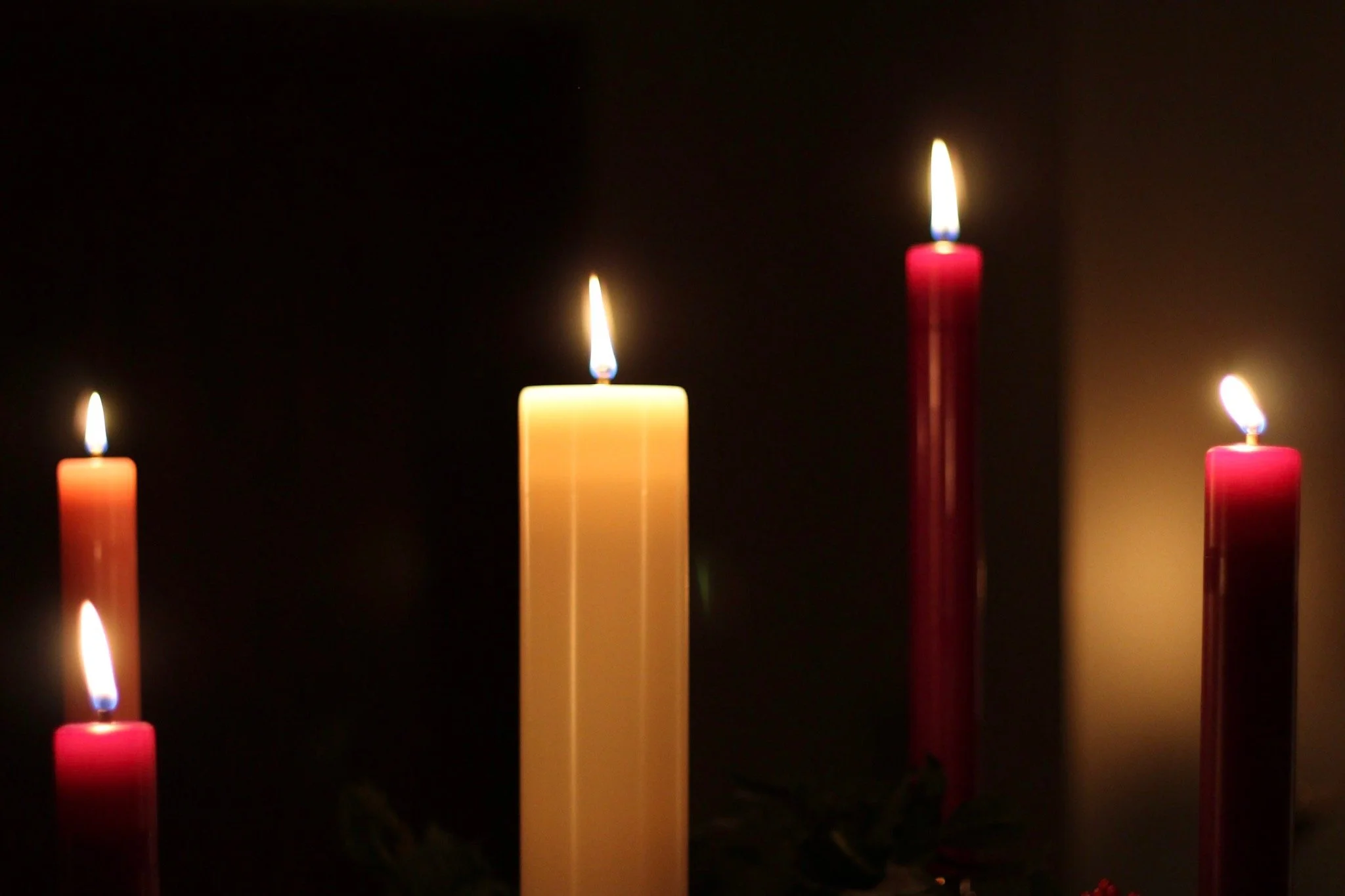December 24th, 2021
Luke 1:67-80
Then his father Zechariah was filled with the Holy Spirit and spoke this prophecy:
68 “Blessed be the Lord God of Israel,
for he has looked favorably on his people and redeemed them.
69 He has raised up a mighty savior for us
in the house of his servant David,
70 as he spoke through the mouth of his holy prophets from of old,
71 that we would be saved from our enemies and from the hand of all who hate us.
72 Thus he has shown the mercy promised to our ancestors,
and has remembered his holy covenant,
73 the oath that he swore to our ancestor Abraham,
to grant us 74 that we, being rescued from the hands of our enemies,
might serve him without fear, 75 in holiness and righteousness
before him all our days.
76 And you, child, will be called the prophet of the Most High;
for you will go before the Lord to prepare his ways,
77 to give knowledge of salvation to his people
by the forgiveness of their sins.
78 By the tender mercy of our God,
the dawn from on high will break upon us,
79 to give light to those who sit in darkness and in the shadow of death,
to guide our feet into the way of peace.”
80 The child grew and became strong in spirit, and he was in the wilderness until the day he appeared publicly to Israel.
Making Time
As a bishop, I spend a lot of time in the car. With congregations spread out all over our state and diocese of Oklahoma, and a different one to visit each Sunday (plus some midweek services and meetings away from Oklahoma City), it is common for me to drive several hours, each way.
Visiting congregations is my favorite part of my ministry, without question. But one of the things I’ve had to learn is how to make good use of the time in the car there and back. Sometimes I’ll need to make a phone call while driving, or participate in a Zoom meeting (audio only!). But most drives, I’ll listen to a podcast, or an audio book, or music.
For me, the difference is between wasting time and making time. I try to see my long drives as blessings, opportunities to make time for things I enjoy. What I listen to is fun and entertaining, sometimes thought-provoking, and often not religious. In the car is when I get to nurture some of my other interests.
There are different kinds of waiting. There’s the waiting we do that is not enjoyable or productive: we’re just watching the proverbial paint dry. There’s anxious waiting, as we have been doing in this COVID pandemic, desperate for it to end. And then there’s purposeful waiting, using the time well, finding meaning in the anticipation, or patiently getting ready for what is to come.
When I was a child, the season of Advent was excruciating for me because I couldn’t wait for Christmas Day. I dreamed impatiently of piles of presents, under and around the Christmas tree. Now, as an adult, I appreciate the preparation that (ideally) comes with Advent. I relish each of the four weeks. In fact, I often wish Advent were longer.
My friends, here we are, at Advent’s end.
Christmas Eve.
What is done, is done, and what is not, will not be. Did we make good use of Advent to prepare in our hearts room for the Savior’s birth? Did we pray, read the Scriptures, give to those in need, offer hospitality, seek silence, value ‘enough’ over excess, and do those other things that invite God to prepare the way within and through us for the long-expected Christ?
Or did the brief season get away from us in the hectic dashing around? Were we bogged down in grief or anxiety or pandemic exhaustion? Was our waiting for Christmas lacking intention and purpose this year, a mere running down of the clock? Either way, with things done and left undone, Christmas has arrived.
Prepared or not, our Advent time used well or wasted, our celebration of Jesus Christ’s birth is here. And there is nothing, nothing at all, that God expects of us now to earn God’s loving presence among us. It is a pure and holy gift: Immanuel, God With Us, for the unprepared and the undeserving. For you, and for me.
The Advent journey was never ours to make. Not really. It was always God’s journey, to us, for us, from heaven to earth, from before time, and in an instant. The God who made Time has entered into it. At Bethlehem, now, and forever, until Christ returns in glory.
A Child is born.
A Son is given.
Come, let us adore Him.
The Right Reverend Poulson Reed, Bishop of Oklahoma
The Episcopal Diocese of Oklahoma

